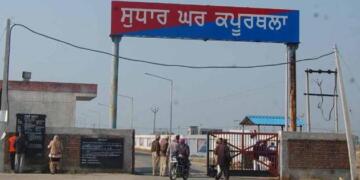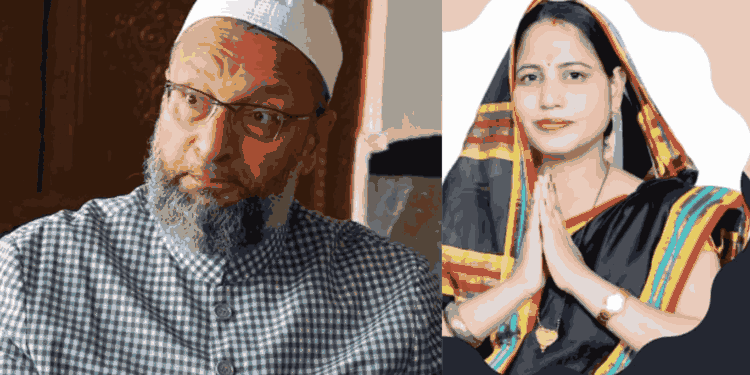RelatedPosts
AIMIM’s lone Hindu woman councillor in Madhya Pradesh, Aruna Upadhyay, has quit the party amid serious allegations of religious conversion. Her abrupt resignation comes in the backdrop of growing tensions in Khargone, a communally sensitive town that had previously witnessed violent clashes. Aruna’s decision has stirred fresh political controversy, particularly as she was elected from a Muslim-majority ward, raising eyebrows since 2022. Allegations by her husband and locals accusing her of pushing people to convert to Islam made her exit inevitable. This development exposes the fault lines within AIMIM and its handling of non-Muslim leaders in sensitive constituencies.
AIMIM’s Only Hindu Face in MP Steps Down
In a move that has sent ripples across Madhya Pradesh’s local political landscape, Aruna Upadhyay—the sole Hindu woman councillor representing the All India Majlis-e-Ittehadul Muslimeen (AIMIM) in Khargone—has officially resigned from the party. Her departure marks a significant blow for AIMIM, a party already under scrutiny for promoting minority politics and, at times, facing accusations of communal polarization. Upadhyay’s resignation letter, addressed to the AIMIM central office in Hyderabad and dated July 14, cited “personal reasons,” but the underlying cause appears to be far more troubling.
According to reports, Aruna was facing public allegations related to religious conversions. These accusations, reportedly made by her husband and a few others, claimed she was attempting to convert residents to Islam in a ward with a 70% Muslim population.
Victory in a Muslim-Dominated Ward Now Clouded
Aruna’s 2022 election to Khargone’s ward number 2 had raised eyebrows across the political spectrum. The ward was not only Muslim-dominated but also reserved for SC women candidates. Her narrow victory over the BJP’s Sunita Gangele by just 31 votes gave AIMIM a rare Hindu face in the state.
However, that image has now taken a hit. With Upadhyay stepping down and refusing to align with any other political party, AIMIM’s credibility among Hindu voters has suffered a setback. In her statement to reporters, she said she will continue to serve as an independent councillor, distancing herself from all political affiliations, especially those viewed as divisive.
Communal Tensions in Khargone Add to the Heat
Khargone is no stranger to communal violence. The town had witnessed riots on April 10, 2022, during Ram Navami celebrations. That incident left a deep scar on the social fabric of the town, with Hindu-Muslim relations strained ever since. In such a volatile environment, a Hindu councillor representing AIMIM—a party seen as a Muslim-interest outfit—was bound to face challenges.
While AIMIM had won three of the seven seats it contested in Khargone Municipal Council, Aruna’s position was unique. She became a lightning rod for political criticism, especially after the conversion allegations surfaced. Her resignation has once again highlighted the deep-rooted mistrust between communities in riot-hit regions, and how political experimentation can backfire in the absence of consistent local support.
Allegations of Conversion Spark Political Storm
The conversion accusations against Aruna Upadhyay were not just local gossip—they struck at the heart of AIMIM’s political vulnerability. Her husband, among others, reportedly accused her of attempting to convert locals to Islam under the guise of community service and party work. These claims were based on fact and they have undoubtedly damaged her credibility and that of the party.
For AIMIM, a party already criticized for communal rhetoric, these accusations are a public relations disaster. The optics of a Hindu councillor allegedly aiding religious conversions while being associated with a party often blamed for sectarian politics is deeply problematic. With no formal denial or support from AIMIM’s central leadership, Aruna had no choice but to step away.
A Setback for AIMIM’s Outreach Politics
Aruna Upadhyay’s resignation is more than just an individual stepping away from politics it symbolizes the failure of AIMIM’s attempt to present a broader, inclusive image in Hindu-majority states like Madhya Pradesh. Her exit under the cloud of religious conversion allegations only reinforces the perception that AIMIM remains a party struggling to accommodate non-Muslim voices. As communal tensions simmer in towns like Khargone, her departure may also push AIMIM further into a political corner. If the party wishes to expand beyond its core base, it will have to do more than just field token Hindu candidates—it will need to genuinely address intra-party trust and inter-community integration.























